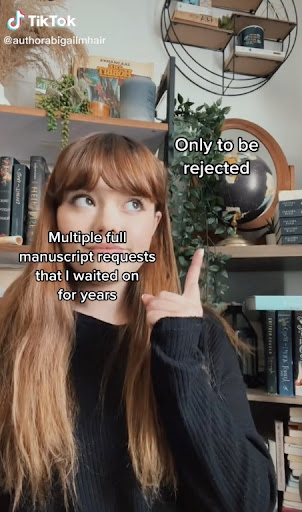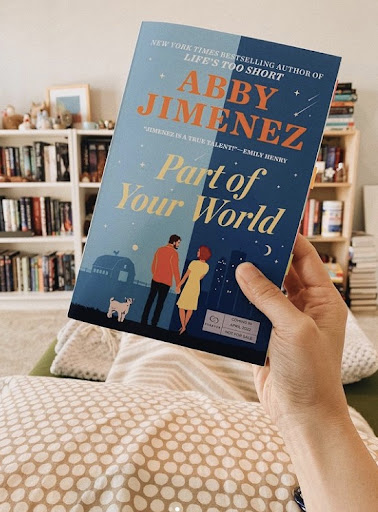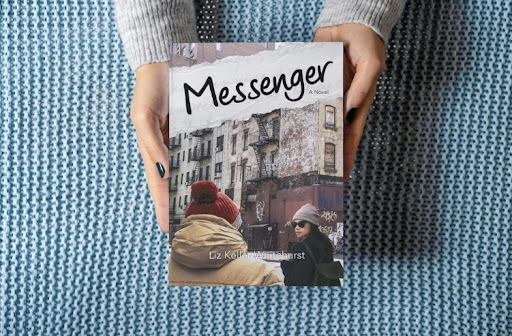Social media is one of the most effective ways to market your products or services. I know that when I find out about a new author, actor, restaurant, boutique, etc., the first thing I do is search for them on social media. Even when using Google, the first links that pop up are always the main social media sites, as long as the person I am searching for has a presence there.
There are many reasons why some platforms may make more sense for you than others, but with all the tips and tricks we have below, keep in mind that none of this is black and white. The tips below are just based on what we’ve seen authors have success with in the past, and on demographics for each social media platform!
What should I focus on when deciding which platform to use?
When deciding which social media platform to focus on, think about your audience. What is the age demographic you are trying to target? That should be the first indicator on where to get started. Also, don’t get overwhelmed by all of the options below! It is much better to consistently create good quality content for one platform, going directly to your ideal audience, rather than creating average content spread out across five different platforms reaching wide ranges of people every once in a while. You can slowly work up to more platforms once you figure out the ideal place to start for your book and brand!
What are the benefits and target audiences for each platform?
 Facebook is the largest social media site, with 2.9 billion people having a Facebook account. It has a reputation of being for older generations. But based on recent statistics, 26.4% of the platform’s user base is actually made up of millennials ages 25-34. However, 36% of the platform’s users are 45 or older.
Facebook is the largest social media site, with 2.9 billion people having a Facebook account. It has a reputation of being for older generations. But based on recent statistics, 26.4% of the platform’s user base is actually made up of millennials ages 25-34. However, 36% of the platform’s users are 45 or older.
The Facebook algorithm is designed to focus on starting discussions, whether among friends and family members on a personal profile, or among you and your audience members on a Facebook page. That means your posts should have questions in them to spark conversations! For example, mystery books with shocking twists make for great discussion pieces and would do well on Facebook.
However, there are so many ways you can make your genre work on Facebook. You just need to be creative with content ideas! Your post could also be as simple as a picture of the current book you are reading and a cup of coffee. In the caption, you can pose the question: “Do you prefer coffee or tea / Have you read this book?” etc. Make it a conversation! Facebook is a good place to share links to blog posts as well, if you have a blog!
TikTok
 TikTok was created in 2016 and has 1 billion users. It’s one of the fastest-growing apps in the world. And it has more daily visitors than Google and Facebook. And if you haven’t heard of it yet, #BookTok is taking the “book world” by storm, so it’s probably time to hop on the bandwagon!
TikTok was created in 2016 and has 1 billion users. It’s one of the fastest-growing apps in the world. And it has more daily visitors than Google and Facebook. And if you haven’t heard of it yet, #BookTok is taking the “book world” by storm, so it’s probably time to hop on the bandwagon!
The target audience for TikTok is ages 16-24, with 60% of the users being under 25. However, keep in mind that YA and/or fantasy authors will absolutely perform the best on TikTok because those are the most popular genres on BookTok. But there are so many niches on TikTok, and BookTok specifically, that you can most likely find a world for your book on there somewhere, even if you don’t write YA or Fantasy.
Also keep in mind that TikTok is known for humorous videos. You’ll spend a lot of time making videos to go with funny, trending sounds, and showing your face a good bit! It’s definitely an app you can have fun with, but wouldn’t be ideal if you don’t have time to regularly film videos and search the app for ideas or relatable content to make your own.
 Instagram has 2 billion users, and is one of the most visual platforms. It focuses on showcasing items or services through videos and images. #Bookstagram is a huge part of the “book world,” where your book could potentially do really well if you market it correctly!
Instagram has 2 billion users, and is one of the most visual platforms. It focuses on showcasing items or services through videos and images. #Bookstagram is a huge part of the “book world,” where your book could potentially do really well if you market it correctly!
60% of Instagram’s users are ages 18-34, so the majority are either Gen Z or Millennials. That means that a wide range of genres can do well on Instagram, and what really matters is making sure your content looks really nice. Instagram has sort of become a version of Pinterest, where the ideal Instagram feed would be very aesthetically pleasing. For example, romance books usually have fun, adorable covers and do well on Instagram.
For your profile as an author, any content that focuses on showing off your book, images of yourself, your writing desk, your favorite coffee shop, videos of you doing some of your hobbies, graphics shouting out any upcoming events and interviews, would all do well on the app.
Another thing to consider is that Instagram and TikTok are two platforms that can go hand in hand pretty well. If you’re making TikTok videos, you can easily reshare them onto Instagram as reels to maximize the visibility of your videos.
Twitter has 436 million users, and most of Twitter’s content focuses on trending news, entertainment and politics. 38.5% of Twitter users are ages 25-34, and 21% are ages 25-49.
With each Twitter post or “Tweet”, you are only able to type a maximum of 280 characters, so each tweet is very concise! Tweets that have an image or link with them also perform better than just text.
You shouldn’t only post about your book – posting about current events and entertainment you are enjoying, such as other books you are reading or TV shows that you are watching is beneficial to reach a wider audience. A great way to join the conversation is to talk about trending topics and relate it back to your book when and if you can! You can also use popular hashtags associated with author and writer life. Try tagging all of your relevant content with #AuthorCommunity and #WritingCommunity.

Other platforms include LinkedIn, which is great for the business authors out there, Youtube, which focuses on long form videos, and Pinterest, which I mentioned above. Social media is definitely an investment of your time, but we do find that it pays off in the long run. And most of all, remember to have fun with it!


